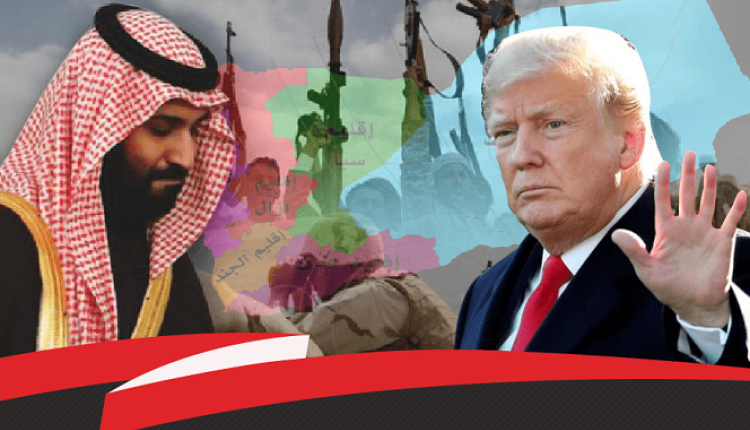The American website"Responsible Statecraft" reported that "Washington played a significant role in the war on Yemen and was a crucial part of prolonging it. However, it largely remained on the sidelines during the successful negotiations held so far."
The website added in a report that "The military intervention of the United States in Yemen through three different administrations over the past eight years has firmly placed it among the war-makers." Despite the American influence that emerged at the beginning of the war, Yemen now appears ready for genuine peace.
The site noted that President Joe Biden's envoy to Yemen, Tim Lenderking, traveled to Saudi Arabia and Oman in March, while Biden's National Security Advisor, Jake Sullivan, spoke with "war architect" Mohammed bin Salman and "welcomed Saudi Arabia's extraordinary efforts" to create a roadmap for ending the war.
While these efforts suggest Washington's interest in involving itself in the negotiations, it also serves as a reminder of the United States' alignment over the past eight years, according to Responsible Statecraft.
The website explained that recent Pentagon leaks regarding Saudi Arabia's agreement to the demands of the Sana'a government "reveal Riyadh's desperation to exit a war it could not win and expose the increasingly ineffective role of the Biden administration, which has led to counterproductive outcomes in many aspects of the process."
The website discussed the history of American intervention in Yemen, stating that former President Barack Obama "quickly declared his administration's support for Saudi allies from the very beginning of the conflict."
In the years that followed, Presidents Obama and Donald Trump sold a total of "at least $54.6 billion in military support to Saudi Arabia and the United Arab Emirates from 2015 to 2021," according to the United States Government Accountability Office.
Although President Biden claimed to end support for the war in early 2021, a report from the Government Accountability Office found that the distinction between "offensive" and "defensive" operations was never defined by state officials, and the current American administration continued to support the coalition.
The military support for the war extended beyond arms sales, as the United States provided logistical support throughout the conflict, selected targets from a command room, exchanged intelligence information, refueled aircraft mid-air, trained pilots and ground forces, supplied spare parts, equipment, and aircraft, provided diplomatic cover for the war and blockade, and even secretly deployed special American forces at the Saudi-Yemeni border.
The website added that this constituted an "illegal and unconstitutional war that involved the United States as a party to the conflict and prompted Congress to issue its first War Powers Resolution in April 2019."
The report also addressed the criteria for lasting peace in Yemen, stressing that the roadmap must include "restoring Yemeni sovereignty by lifting the blockade completely and ending the Emirati occupation of areas such as Socotra Island and the Saudi occupation of Al-Mahra Governorate."
The report suggested that "this exit could pave the way for peace among Yemenis, who have a deeply vested interest in coexistence and are capable of reaching a negotiated settlement."







